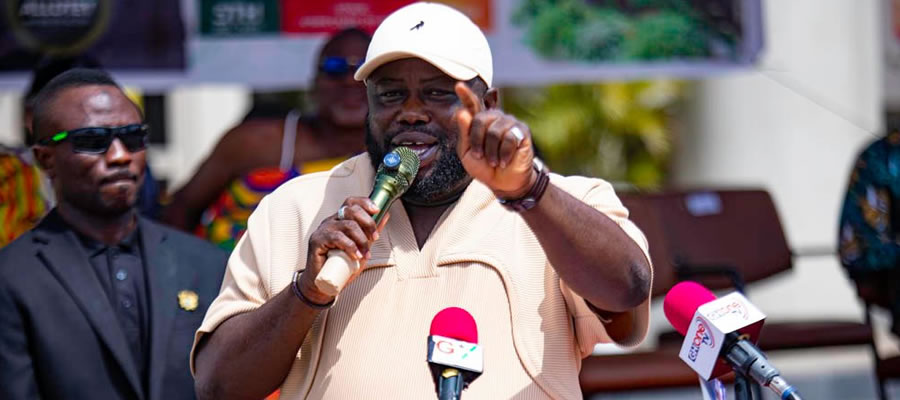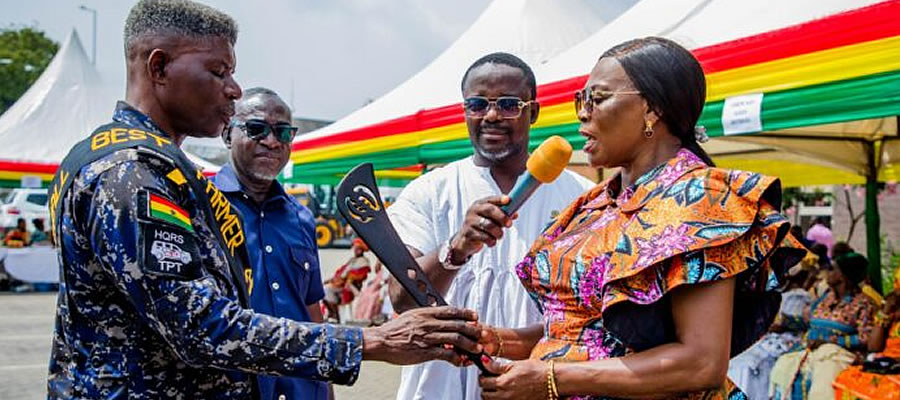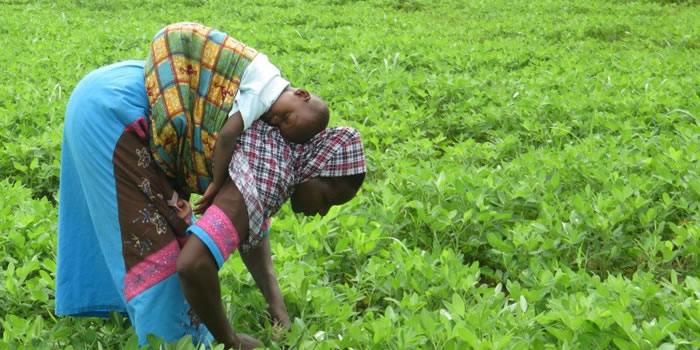

AGRICULTURE
Fisheries Ministry signs MOU with FAO for 2nd phase of EAF-Nansen Programme

Date Created : 5/25/2017 12:29:21 PM : Story Author : Dominic Shirimori/Ghanadistricts.com
By this MOU, Ghana will allow fisheries surveys to be conducted in its marine waters by the EAF-Nansen research vessels.
The project seeks to sustainably enhance fisheries management to improve food and nutrition security for people in partner countries”.
Speaking at the signing ceremony, the Minister of Fisheries, Elizabeth Afoley Quaye who signed on behalf of Ghana said the research work will go a long way to support efforts at strengthening fisheries management in Ghana. She said over the years FAO has collaborated with others including the Norwegian Institute of Marine Research (IMR) and the Nansen programme to implement programmes aimed at contributing to the implementation of fisheries and fisheries management through the Ecosystem Approach.
She said through the Nansen project, coastal countries like Ghana received technical support from FAO for the development of national frameworks for the development and implementation of national plans for sustainable fisheries in the sub-region.
“We have been privileged to have the vessel conduct resource and environmental surveys in our waters and significant results of these surveys have been incorporated in the enactment of our National Fisheries Management Plan”.
To this end said she is sure that the 2nd phase of the project code names – GCP/GLO/690/NOR and titled “Supporting the Application of the Ecosystem Approach to Fisheries Management Considering Climate and Pollution Impacts”, will build on the experiences of previous phases to address issues such as global climatic variability and fluctuations in trophic interactions, coastal tides and erosion which threatens livelihoods of fishing and human pollutions.
Mr. Abebe Haile Gabriel, FAO Deputy Regional Representative for Africa/FAO Representative, Ghana said the EAF-Nansen Programme aims to help address the weaknesses in fisheries management in partner countries and identify interventions that will create the opportunity for long-term sustainable and transformational change. The presence of the R/V Dr. Fridtjof Nansen in the waters of beneficiary countries has resulted in greater understanding of the need to manage marine resources sustainably.
He disclosed that though much progress has been made in the African Continent in restoring fisheries and aquaculture as national and regional development priorities, challenges like weak human capacities and systems for information collection and analysis remain a key constraint to a positive transformation of the fisheries sector, therefore developing the human capacity for marine and fisheries research and management is very relevant to the sustenance of fishery industry.
“The data and information obtained through the EAF-Nansen surveys provided not only vital information for the sustainable management of the marine fisheries resources, but they also contribute to the definition of strategies and policies for this very important sector towards the achievement of food security”.
The general misconception that the oceans are so vast that our contribution to pollution is negligible must be reversed through deliberate education of all stakeholders and the general public. If we do not check the continuous pollution of the oceans, one day, all the accumulated polluting materials and chemicals may jeopardize the food web and collapse the establishment of the mainstay of fisheries and the future aquaculture”.
He expressed hope that since experiences have shown that effective fishery research is decisive for profitable and sustainable fisheries development, managers, policy makers, and other relevant stakeholders and institutions in the fisheries industry would continue to advise on and promote the sustainable utilization of fisheries resources and ecosystems by leading, managing and supporting appropriate natural science and fisheries research.





 facebook
facebook
 X
X
 Youtube
Youtube
 instagram
instagram
 +233 593 831 280
+233 593 831 280 0800 430 430
0800 430 430 GPS: GE-231-4383
GPS: GE-231-4383 info@ghanadistricts.com
info@ghanadistricts.com Box GP1044, Accra, Ghana
Box GP1044, Accra, Ghana